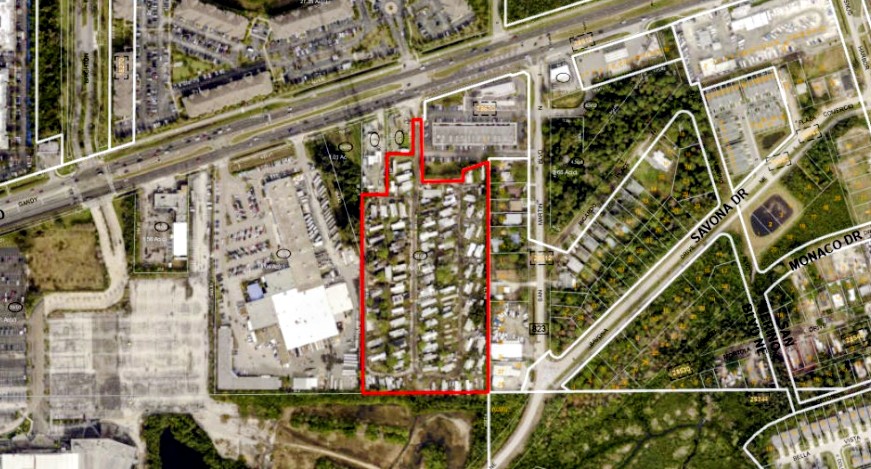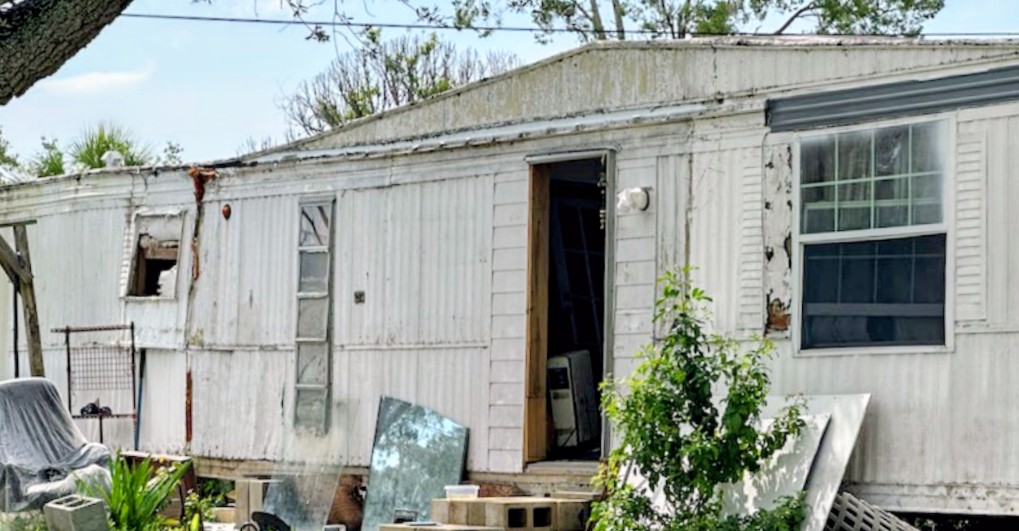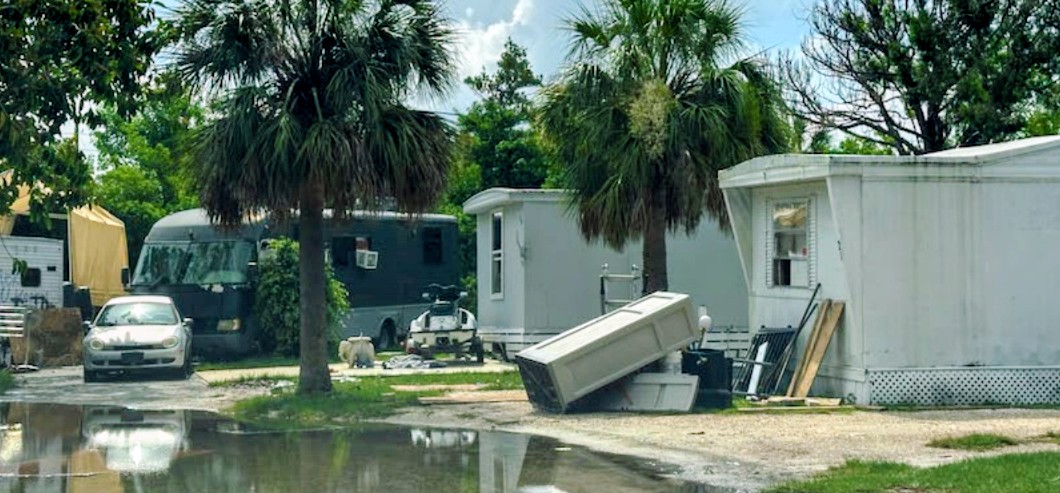Hurricane damage and a complex redevelopment process have left residents at the Twin City Mobile Home Park in limbo.
The flood-prone, 71-year-old community is at 10636 Gandy Boulevard, near Derby Lane. It is also within an isolated section of unincorporated Pinellas County, surrounded by the City of St. Petersburg.
Lakeshore Management, the property owner, applied for a land use map amendment that would permit a multifamily development on the 8.94-acre parcel. The company proposed replacing what remains of the mobile home park with a 133-unit apartment complex; however, the county’s comprehensive plan prohibits that level of increased density within a Coastal Storm Area (CSA).
“I hate to say this, but it doesn’t matter what St. Pete did right across the street,” said County Attorney Jewel White. “That’s St. Pete’s plan, and it has no bearing on your comp plan and your land development regulations.”
Current land-use regulations would allow up to 64 residential units at the site. Twin City, which has 103 mobile homes and three apartments, is already non-compliant.

An overhead map that shows a large residential development across Gandy Boulevard from Twin City Mobile Home Park (red).
Some commissioners supported Illinois-based Lakeshore Management’s plans and sought to find a loophole that would allow the redevelopment. However, White was adamant that the county’s regulations for unincorporated areas, backed by state law, forbid officials from approving the plan.
White also noted that changing the comprehensive plan would require approval from multiple local agencies and the state, and would have far-reaching impacts. “It’s a growing issue,” she said of the CSA restrictions.
Pinellas County identified 1,400 mobile homes, which typically provide critical affordable housing, that needed substantial damage assessments following Hurricanes Helene and Milton. Approximately 1,100 of those homeowners, who often lack the same protections and services afforded to others, were left scrambling for solutions.
Trailers quickly depreciate, making substantial damage assessments a near certainty. Officials condemned many structures following the storms.
Commissioner Dave Eggers noted in May that residents who elevate their mobile homes, a difficult task, could be more susceptible to high winds. “There’s just no solution for them … I share their frustration,” he said.
County records show that as of Sept. 10, 51 people who live at Twin City have applied for relocation assistance. Officials approved 42.
Glenn Bailey, planning division manager for the county, said Tuesday that Lakeshore Management has helped relocate residents over the past several months, and “that’s going very well.”

Many homes in the community have remained uninhabitable for over a year.
Attorney Todd Pressman, who represents Lakeshore, stressed the importance of “getting these folks into safe structures.” He said redeveloping the park would eliminate the county’s need to repeatedly rescue residents from flooding and the associated financial challenges for everyone involved.
Pressman read emails from former residents who thanked Lakeshore and the county for helping them find a new, safer home. He said the redevelopment would meet new flood elevation, building strength and wind speed requirements, while adding an expansive stormwater pond that would benefit the area.
“This site will be tremendously, light-years improved from what it is today,” Pressman added.
Commissioner Renee Flowers credited Lakeshore for a “concerted effort” to relocate residents. However, she is also against any new construction in such a flood-prone area.
White also noted that the Florida Building Code would require a development with the permitted 64 units to feature all of the environmental resiliency aspects Pressman listed “anyway.” Pressman said his client needs to more than double the allowable density – an additional 30 units over what is now on the property – to ensure the project is economically viable.
“I see a lot of benefits to this development,” said Commissioner Chris Scherer. “If we can’t approve it, if it were me, I’d be looking at new manufactured housing with 106 units.”
Flowers said it could not remain a mobile home park with the current grandfathered number of units, because those residents cannot afford to elevate their trailers by several feet. “So, that would be a no, I can tell you that.”
Pressman and some commissioners frequently noted the contrasting development regulations surrounding the property. “When you look at virtually all sides of this site, the densities can be, at a maximum, almost double,” he said. “We’re asking for much less than that. You had no opposition.”
Commissioners unanimously denied the land-use amendment, despite extensive debate over the comprehensive plan’s directions and allowances. Pressman asked that they defer the rezoning vote “so the applicant can have the ability to understand the results of the first vote, and what they would want.”
The commission will revisit the matter Jan. 20.

